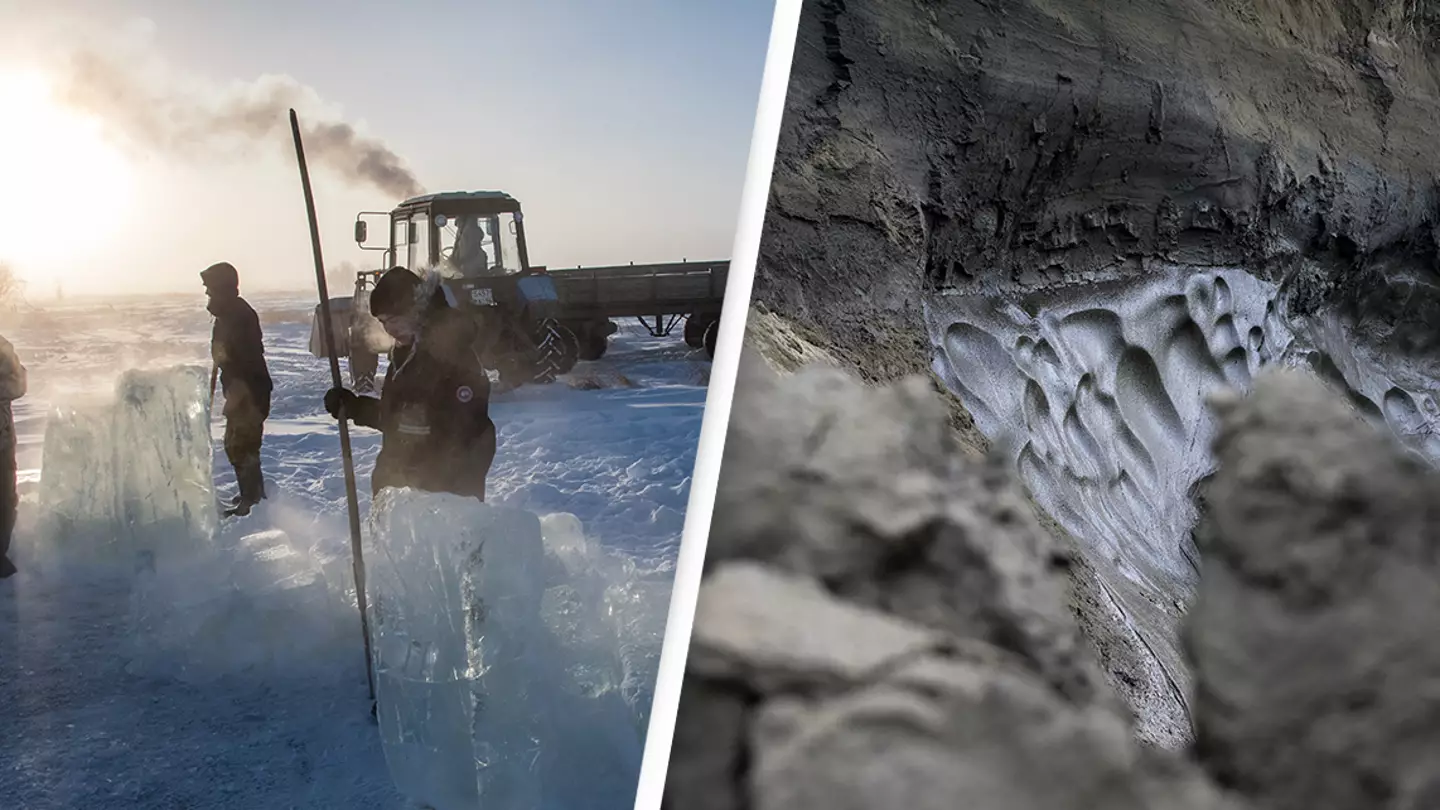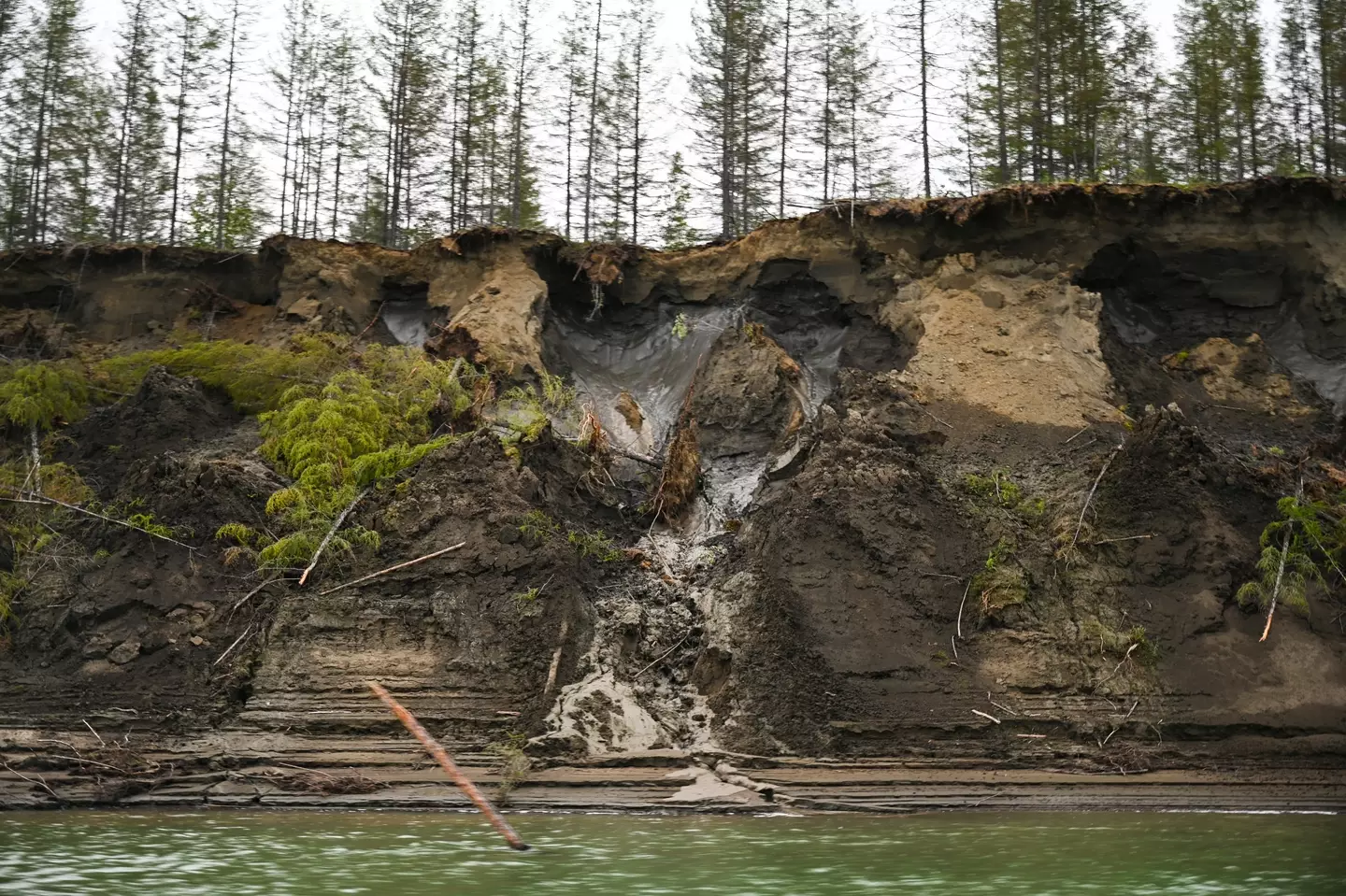
A new study has suggested the release of pathogens trapped in the planet's melting ice could pose a threat to humanity.
The global study by Flinders University Professor Corey Bradshaw, and Dr Giovanni Strona of the European Commission Joint Research Centre, was published in the journal PLoS Computational Biology.
It found that ancient pathogens that have been locked away for hundreds of thousands of years under permafrost and glaciers are starting to emerge as climate change takes hold.
Around 1 per cent of these could pose a substantial risk to modern ecosystems and even human health.
Advert
Live Science says these pathogens are called 'black swans' due to 'a rare and unlikely, but hugely impactful event'.
Permafrost is a mix of soil, gravel and sand bound together by ice.

It's found either on or beneath Earth’s surface in regions of the Arctic, including parts of Alaska, Greenland, Russia, China and Northern and Eastern Europe.
Advert
When it forms, viruses can become trapped underneath it and survive for hundreds of thousands of years.
During the study, the scientists digitally simulated how pathogens from the past invade communities of bacteria-like hosts. They then compared the effects of the invading pathogens on the diversity of the host bacteria to those in communities where no invasions occurred.
"We found that invading pathogens could often survive, evolve and, in a few cases, become exceptionally persistent and dominant in the community, causing either substantial losses or changes in the number of living species," lead author Strona said in the study.
"Our findings therefore suggest that unpredictable threats so far confined to science fiction could in reality pose serious risk as powerful drivers of ecological damage."
Advert
These 'time travelling' viruses pose a potential risk because we have not been exposed to them for so long, meaning we may have few defenses against them.
"In the worst, but still entirely plausible case, the invasion of a single ancient pathogen reduced the size of its host community by 30 per cent when compared to our non-invasive controls," Bradshaw explained.
"As a society, we need to understand the potential risk posed by these ancient microbes so we can prepare for any unintended consequences of their release into the modern world."
The researchers called for scientists to work to better understand the potential risk before its too late.
Advert
“The results tell us that the risk is no longer simply a fantasy that we shouldn’t be prepared to defend against,” Bradshaw said.
Topics: News, World News, Health
